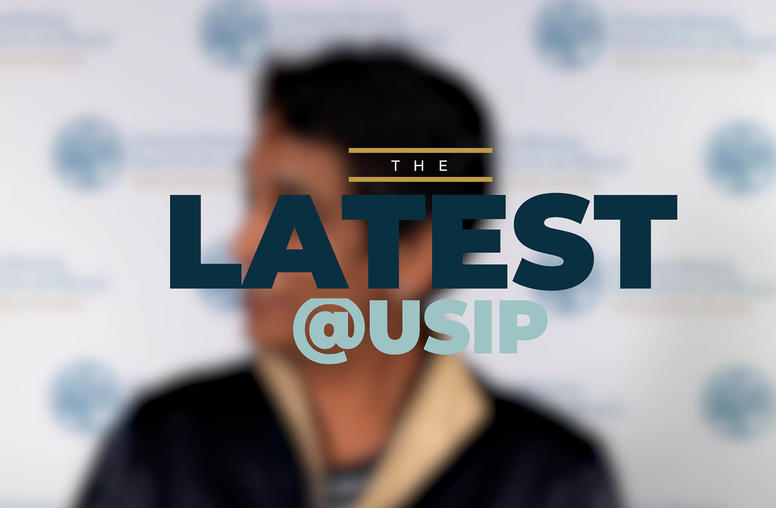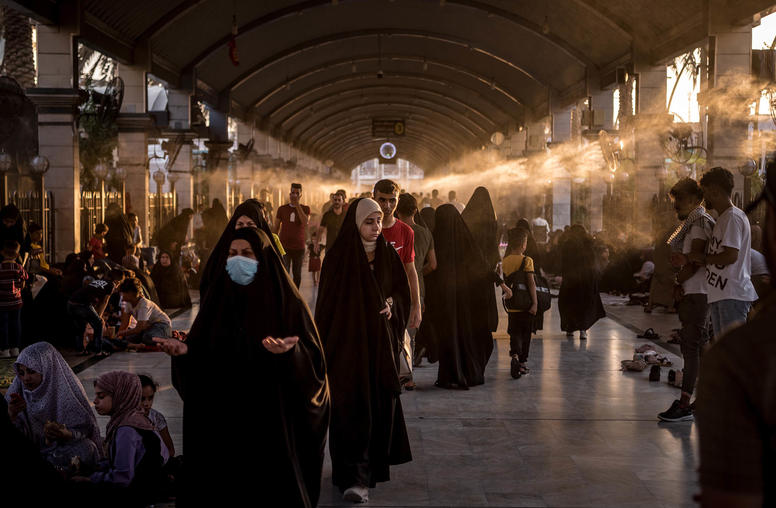This month sees the confluence of three major religious holidays—Christian Holy Week, Jewish Passover and the start of the Muslim holy month of Ramadan—observed by half of the world’s population. In normal times, these holidays provide opportunities for followers to gather in homes and places of worship for ancient practices: sharing meals, reading scripture, joining in prayer. These aren’t normal times, however, as the coronavirus pandemic has emptied usually crowded religious sites. Mecca in Saudi Arabia, St. Peter’s Square at the Vatican, Shwedagon Pagoda in Myanmar and the shrines of Jerusalem are among those emptied of visitors and pilgrims.

The pandemic has elicited diverse responses from the world’s religious communities, with implications for stability, conflict and peace, particularly in countries already suffering violent conflict. Many religious authorities—from Ayatollah Ali al-Sistani in Iraq to chief rabbis across the world, to the leadership of the Church of Jesus Christ of Latter Day Saints in the United States (also known as the Mormon church)—have called for adaptations to traditional religious practice to abide by public health concerns, sometimes in concert with state authorities. Others, from the United States to Pakistan and Bangladesh have resisted, citing political and theological reasons. Some religious figures have worked quickly to prevent or mitigate inter-religious tensions and conspiracy theories maligning certain religious groups, while others have fueled these very prejudices. As always, the responses of religious adherents to this crisis are as diverse as the humans who comprise each tradition. However, what should not be lost in the analysis of global and local community response to the pandemic is the important role that many religious representatives and faith-inspired organizations have played to care for the vulnerable, mitigate violence and provide forms of spiritual health care to their communities.
The real and perceived spread of the virus through religious pilgrimage and practice has led to resentment toward some communities. Orthodox Jewish communities in New York have faced backlash, as have Shiite Muslims returning home to places like Pakistan from pilgrimage in Iran. In various countries, anti-Semitic and anti-Muslim narratives are reported rising, often fueled by conspiracy theories.
The pandemic is already showing evidence of exacerbating societal divisions between religious groups across the Middle East, and in countries like Cambodia, India and the United States, while also spurring inter-communal responses that can heal longstanding cleavages and prevent inter-religious violence from breaking out, sometimes in these very same places.
Religious Communities Respond
In the Central African Republic and Nigeria, inter-religious networks have monitored these tensions and mobilized to prevent violence, while amplifying guidance from public health officials about how to adapt religious practice to ensure the safety of communities. Religious figures and organizations are in many places responding to the pandemic to address the needs of their communities and of the most vulnerable in society—including, especially in conflict-affected areas, refugees and displaced populations. In Colombia, Jesuit Refugee Services is pushing back against xenophobic attitudes and resentment about care offered to Venezuelan refugees facing particular vulnerability in camps.
In the Palestinian territories and Israel, the Mosaica interfaith network has mobilized Jewish rabbis and Muslim sheikhs to encourage closing places of worship and adapting religious practice to reduce the virus’s spread, mitigate inter-religious tensions and monitor and address rising domestic violence. The Zimbabwe Council of Churches is monitoring the rising anxieties of the economically insecure who have been cut off from the formal economic sector on which they depend to provide for their families. Those anxieties, combined with the spread of conspiracy theories and misinformation, have created fear of the potential for violence.
Religious leaders and communities have joined in calling on armed groups and governments to cease hostilities and pursue collaboration to address the pandemic. Among them, Muslim scholars in Afghanistan issued a declaration calling for a ceasefire in the country’s war and the pope endorsed U.N. Secretary General António Guterres’ call for a global ceasefire. They have offered their places of worship as makeshift hospitals or spaces to produce personal protective equipment, like masks, or to store and distribute food and medicine. As is typical, the access of religious networks to communities in rural or conflict-affected areas cut off from state aid has been critical to address those communities’ needs. In Zimbabwe, for example, religious institutions provide the lion’s share of health care in rural areas and have been preparing to address the pandemic with the Council of Churches.
Perhaps most important is the way religious actors have responded in urgent and innovative ways to address the spiritual and emotional needs of communities, addressing the anxiety, loneliness and grief of their community members during this period of physical distancing. From chaplains in hospitals to clergy ministering to homebound community members, they have brought ancient traditions and stories to bear on the current moment—reminding followers of their communities’ resilience in the face of plagues, war and natural disasters. They have encouraged forms of contemplative practice like prayer and meditation in the home, bending religious laws and customs where necessary to meet the needs of the moment. They have tended to the grief caused by the disruption of normal routines, including the loss of traditional religious practices and gatherings, and the rising tide of grief wrought by the pandemic as it takes the lives of loved ones. In so doing, they are providing spiritual forms of health care that attend to the emotional well-being of our communities—a need that will only grow. In this and many other ways, they are demonstrating their critical role in providing frontline support, in ways that advance human security and peace, in the face of the pandemic.



